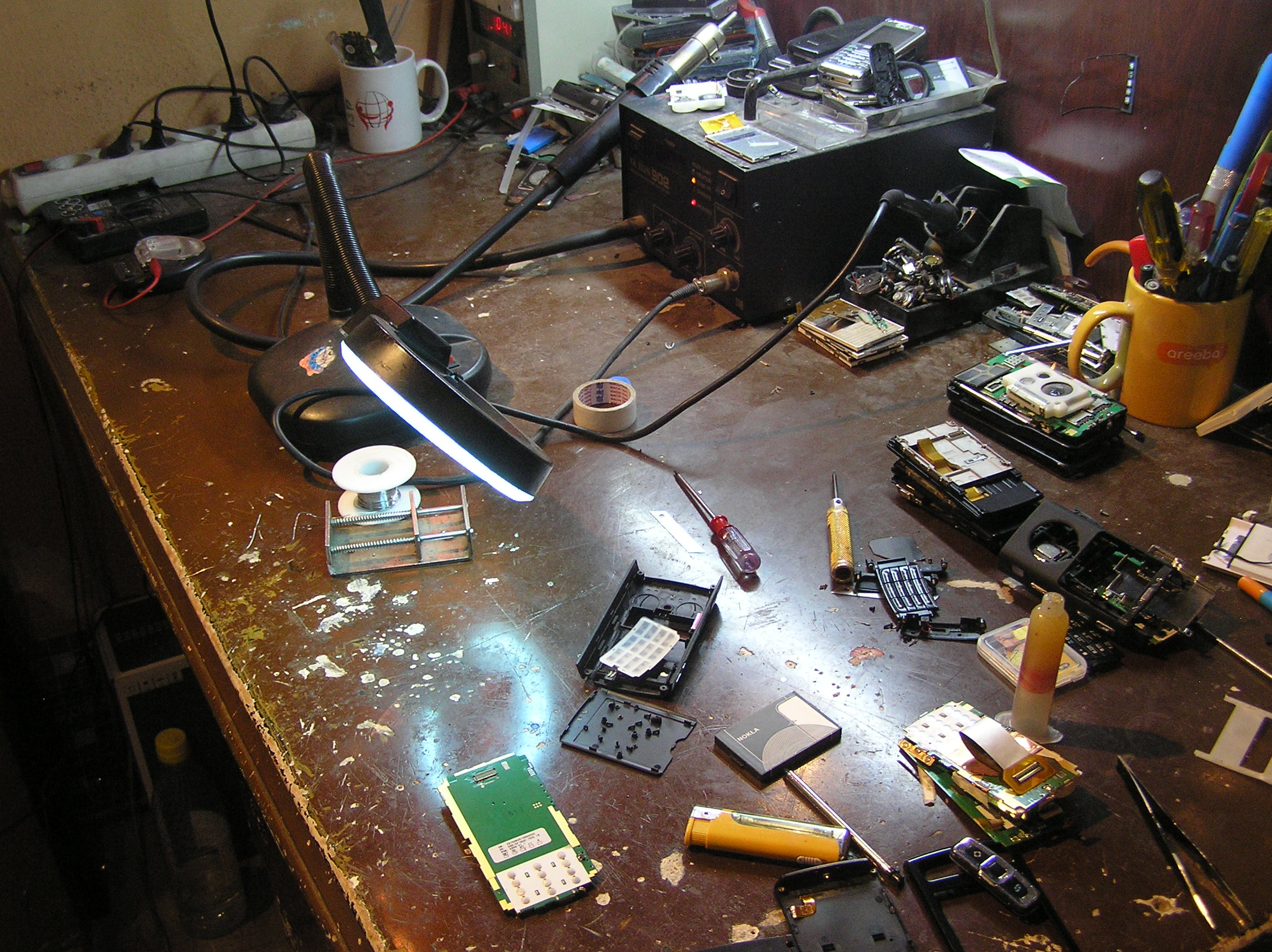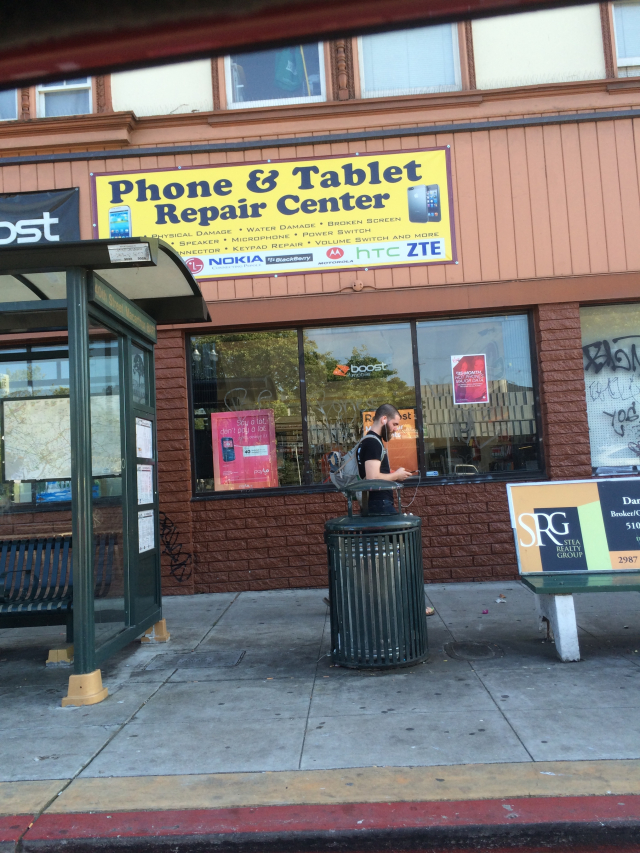 Thursday, April 23, 2015 at 12:19AM
Thursday, April 23, 2015 at 12:19AM Mobile repair cultures in Oakland
About 2005 Jan Chipcase--who has worked it out so that he gets to think and explore his thoughts for a living--noticed that mobile-phone repair was a service available in developing countries (India, China) but not in developed countries. Phone providers in developed countries worked with a replacement model, rather than a repair model. In developed countries, the phones are valuable enough to warrant repair, and to elicit the emergence of repair supply chains and micro-enterprises.
I was somewhat happy to experience this difference in Syria, where I briefly considered having my t-mobile smart phone repaired in the coastal city of Lattakia.

I didn't do it, because I was only in Lattakia for 2 days and the repair would take 3 (sourcing parts, primaily).Instead I bought a Nokia basic phone (with Arabic characters) for US $15; that phone has worked in 10 or 20 countries since that time (with new SIM cards) and continues to work.
And now, 10 years more or less after Chipcase's observation, I can see that mobile-phone repair has come to my city of Oakland:
 At 40th St and Telegraph Ave there is a real, house (not street-based) mobile-phone repair business.
At 40th St and Telegraph Ave there is a real, house (not street-based) mobile-phone repair business.
What are we to make of this?
One possibility is that the cost of mobile phones has increased relative to incomes, so that repair becomes an appealing option -- instead of the junk/replace approach or the dispose-of-responsibly/replace approach. But is that true? I don't know, but given sales information for iPhones (Apple reports record sales of 74.5 million units for the first quarter of 2015) I doubt that this is reason.
Instead, I'm going to suggest that slow growth in wages, lack of employment opportunities for youth, and resulting demand for jobs that entail apprenticeships and on-the-job-training all play roles.
In addition, there's something (warning, "something" = "I'm guessing") of a "reverse technology transfer," as 1st-generation and immigrant Americans adopt business models that have worked in other countries. Plus (plus, always plus, ONE of these reasons have to be correct!), supply-chain issues are involved, as even Apple has made it possible for their stores and 3rd-party vendors to get parts for repairs (OK, at least of broken screens). Finally (at last!), demand for smart phones, as they have become essential tools even for the homeless, has risen among the 99% to the extent that there's a market for used, repaired and affordable units.
Which means, if you'll bear with me, that the cost of phones hasn't risen, but that the market for phones has expanded to include people for whom cost is a bigger issue.

